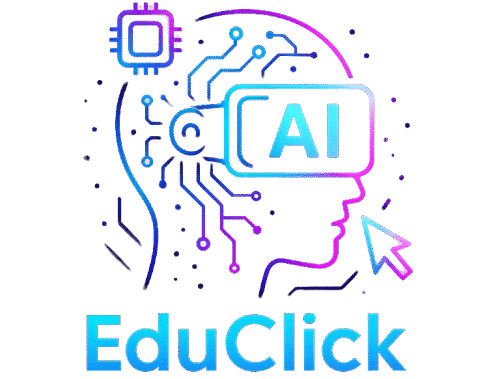Finding the Perfect Learning Management System: A Guide to Making the Right Choice for You

Picture yourself in a classroom setting, albeit one that looks quite different from the traditional rows of desks and a teacher standing at the front. Instead, your classroom is wherever you happen to be. Whether it’s your living room, a cozy coffee shop, or any quiet corner of your home, remote learning strategies have transformed the way you acquire knowledge. And at the heart of this transformation is the learning management system (LMS)—a digital cornerstone that shapes your educational journey, making it more accessible, flexible, and personalized.

You’ve probably encountered various LMS platforms if you’ve engaged in any form of online education or workplace training. With countless options available, each offering a myriad of features, it can be overwhelming to determine which one is the best LMS for your education or training needs. Personal experiences often reveal the vast difference a suitable LMS can make in terms of engagement, ease of use, and the overall learning experience.
Imagine the satisfaction of seamlessly navigating through course materials, participating in engaging discussions with peers, and receiving timely feedback from instructors—all made possible by a well-chosen LMS. Now, envision the frustration of dealing with a clunky interface, limited support, and a platform that doesn’t quite meet your learning needs. The right LMS can be as crucial as a skilled teacher in guiding you through the learning process.
In this article, we’ll explore the nuances of learning management systems, helping you make an informed decision that aligns with your unique requirements. Whether you’re an educator, student, or administrator, our comprehensive LMS comparison will provide you with insights, practical advice, and the confidence to choose the right platform. Let’s delve into the world of learning management systems and uncover which one is the perfect fit for you.
Understanding Learning Management Systems
What Is an LMS?
A Learning Management System (LMS) is a software application or web-based technology used to plan, implement, and assess a specific learning process. It serves as a digital hub for online education, enabling educators to create and deliver content, monitor student participation, and assess performance. For learners, an LMS provides access to educational materials and resources, facilitates communication, and supports collaborative learning.
The Evolution of LMS
The journey of LMS began in the late 1990s when traditional education models began integrating digital technologies. Initially, these systems were simple repositories of information. Over time, they have evolved into sophisticated platforms offering a variety of features such as gamification, mobile learning, and artificial intelligence-driven insights. Understanding this evolution helps you appreciate the flexibility and functionality that modern LMS platforms offer today.
Core Features of an LMS
- Content Management: Includes tools for creating, storing, and organizing educational content.
- Assessment Tools: Quizzes, assignments, and surveys to evaluate learner understanding.
- Communication Features: Messaging, discussion boards, and video conferencing to facilitate interaction.
- Analytics and Reporting: Tracking learner progress and outcomes to inform teaching strategies.
Evaluating Your Needs
Identifying Your Goals
Before choosing an LMS, it’s essential to identify your educational goals. Whether you’re seeking to enhance student engagement, streamline administrative tasks, or integrate remote learning strategies, your objectives will guide the selection process. Consider questions like: What are the critical features needed? How will the LMS support your teaching methodologies?
Understanding Your Audience
Knowing your audience—students, teachers, or employees—is crucial. Consider their tech-savviness, learning styles, and accessibility needs. For instance, a tech-friendly platform might be suitable for younger learners, whereas a more intuitive interface is beneficial for those less familiar with digital tools.
Budget Considerations
Budget is a significant factor in selecting an LMS. Prices vary widely, from free open-source platforms to costly enterprise solutions. It’s important to balance cost with the value provided, ensuring that you invest in a system that meets your needs without unnecessary expenses.
🎥 Vídeo complementar sobre o tópico
Comparing Popular LMS Platforms
Moodle: The Open-Source Champion
Moodle is renowned for its flexibility and extensive customization options. As an open-source platform, it offers a robust community for support and a wide range of plugins for enhanced functionality. It’s ideal for institutions that require a customizable, cost-effective solution.
Canvas: User-Friendly and Intuitive
Canvas stands out for its ease of use and intuitive interface. It offers seamless integration with other educational tools and platforms, promoting a smooth user experience. Canvas is particularly popular in higher education settings, where user experience is paramount.
Blackboard: Comprehensive and Feature-Rich
Blackboard is a comprehensive LMS that provides a wide array of features, from content management to analytics. It is well-suited for large institutions seeking a robust system with extensive support and training options. However, it may require more investment in terms of both time and cost.
Practical Applications and Case Studies
Real-World Success Stories
Consider the case of a large university that transitioned from a traditional LMS to a more modern platform like Canvas. The move led to a 30% increase in student engagement and satisfaction, as reported by course evaluations. Such case studies highlight the impact of a well-chosen LMS on education outcomes.
Industry-Specific Implementations
Different industries have unique needs, and an LMS can be tailored to meet these requirements. For example, a healthcare organization utilizing Moodle for training its staff found the system’s flexibility invaluable in creating role-specific training modules, leading to improved compliance and knowledge retention.
Adapting LMS for Remote Learning
With the rapid shift to remote learning, many institutions have leveraged LMS platforms to ensure continuity in education. By utilizing tools like video conferencing and interactive assignments, educators have successfully maintained the quality and engagement levels of in-person learning experiences.
Overcoming Common LMS Challenges
Technical Support and Training
One of the primary challenges in implementing an LMS is ensuring adequate technical support and training. It’s crucial to provide users with the resources and assistance they need to navigate the platform effectively, which can include tutorials, webinars, and dedicated support teams.
Ensuring User Engagement
- Interactive Content: Use gamified elements to make learning engaging.
- Regular Feedback: Provide timely feedback to keep learners motivated.
- Peer Interaction: Foster a community through discussion boards and group projects.
Privacy and Security Concerns
Data privacy and security are paramount when dealing with educational content and student information. Ensure that your chosen LMS complies with relevant regulations such as GDPR or FERPA, and offers features like data encryption, regular security audits, and user access controls.

Frequently Asked Questions
What is the best LMS for education?
The best LMS for education depends on specific needs and goals. Platforms like Canvas, Blackboard, and Moodle are popular choices due to their robust features and adaptability. Consider factors such as ease of use, cost, and the ability to integrate with existing systems when making your choice.
How do learning management systems support remote learning?
LMS platforms support remote learning by providing access to educational resources, facilitating communication between students and teachers, and enabling the delivery of interactive content. Features like video conferencing, discussion boards, and mobile access are essential for maintaining engagement and continuity in a remote learning environment.
Can an LMS be customized to fit specific organizational needs?
Yes, many LMS platforms offer customization options to fit specific organizational needs. Open-source platforms like Moodle are highly customizable, allowing you to add plugins and tailor the system to support unique training requirements and branding.
What are the cost considerations when selecting an LMS?
Costs can vary significantly between LMS platforms. Free options like Moodle provide basic functionalities, while more comprehensive systems like Blackboard may require a substantial investment. It’s vital to consider not only the initial costs but also ongoing expenses such as maintenance, support, and potential upgrades.
How secure are learning management systems?
Most LMS platforms prioritize security by implementing data encryption, user authentication, and compliance with privacy regulations. However, it’s crucial to evaluate each system’s security features and ensure regular updates and audits are conducted to protect against data breaches and unauthorized access.
What role does an LMS play in student engagement?
An LMS enhances student engagement by offering interactive content and facilitating communication and collaboration. Features like gamification, quizzes, and discussion forums encourage active participation and make learning more enjoyable and effective.
Can LMS support mobile learning?
Yes, most modern LMS platforms support mobile learning through responsive designs and dedicated mobile apps. This ensures that learners can access course materials, participate in discussions, and complete assignments on-the-go, making learning more flexible and accessible.
How does an LMS facilitate assessment and feedback?
An LMS facilitates assessment and feedback through features like quizzes, assignments, and peer reviews. These tools allow educators to gauge understanding, provide immediate feedback, and track student progress, contributing to a more tailored and responsive learning environment.
Conclusion
Choosing the right learning management system is akin to selecting a vital partner in your educational journey. With a myriad of options, it’s essential to align your choice with your educational goals, audience needs, and budget constraints. The right LMS not only enhances the learning experience but also simplifies the complexities of digital education, providing a seamless environment for both instructors and learners.
Remember, the best LMS for education is one that complements your teaching style and enhances student engagement. By carefully evaluating platforms like Moodle, Canvas, and Blackboard, you can find a system that not only meets your functional needs but also enriches the educational experience. Your choice should empower you to implement effective remote learning strategies and create a dynamic, interactive learning environment.
As you embark on this journey, consider the impact that a well-chosen LMS can have on your educational outcomes. Whether you’re an educator, administrator, or learner, the right platform can transform challenges into opportunities for growth and achievement. Embrace the possibilities of a suitable LMS and unlock the full potential of your educational endeavors.
Your next step? Dive deeper into the features and benefits of each LMS discussed here, engage with trial versions if available, and consult with colleagues or tech experts to make a well-informed decision. The future of education is digital—make yours a success by choosing an LMS that’s right for you.
Key Takeaways
- Learning Management Systems (LMS) serve as central hubs for online education, offering tools for content delivery, assessment, and communication.
- When selecting an LMS, consider factors such as educational goals, audience needs, and budget constraints to find the best fit.
- Popular LMS platforms like Moodle, Canvas, and Blackboard each offer unique features suited to different educational environments.
- Practical applications and case studies demonstrate the positive impact of a suitable LMS on student engagement and educational outcomes.
- Common challenges such as technical support, user engagement, and security can be overcome with careful planning and selection.




